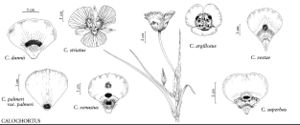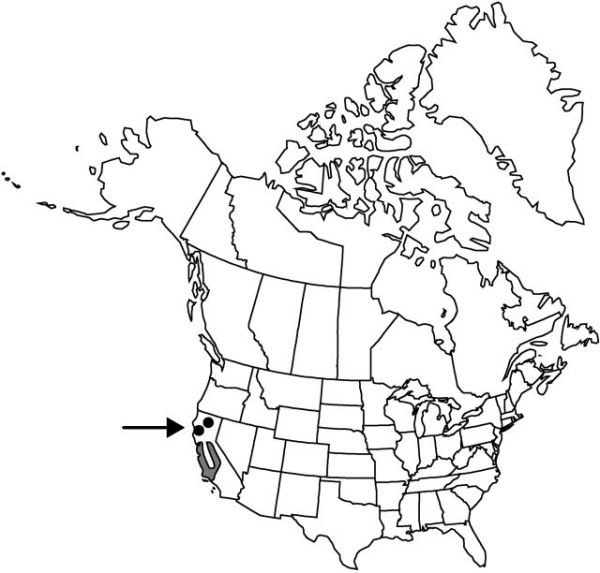Calochortus venustus
Trans. Hort. Soc. London, ser. 2, 1: 412, plate 15, fig. 3. 1835.
Plants bulbose; bulb coat membranous. Stems usually branching, 1–6 dm. Leaves: basal withering, 1–2 dm; blade linear. Inflorescences subumbellate, 1–6(–10)-flowered; bracts 2–8 cm. Flowers erect; perianth open, campanulate; sepals lanceolate, 3–5 cm, apex recurved; petals white to brightly or deeply yellow, purple, or dark red, with dark red median blotch, often with second paler distal blotch, obovate or cuneate to clawed, rounded, 3–5 cm, with scattered proximal hairs, apex retuse to obtuse; glands in lower middle of petal, ± square, sometimes ovate, not depressed, covered with short, orange to red-purple hairs; filaments usually equaling anthers; anthers linear-lanceolate to oblong. Capsules erect, linear, angled, 5–6 cm. Seeds light beige, ± flat, 4–6 mm. 2n = 14.
Phenology: Flowering mid spring–mid summer.
Habitat: Light sandy soil, often in decomposed granite in valley grassland, foothill woodland, and pine forest
Elevation: 300–2700 m
Discussion
Flower color and pattern are very showy and exceedingly variable in Calochortus venustus.
Selected References
None.

